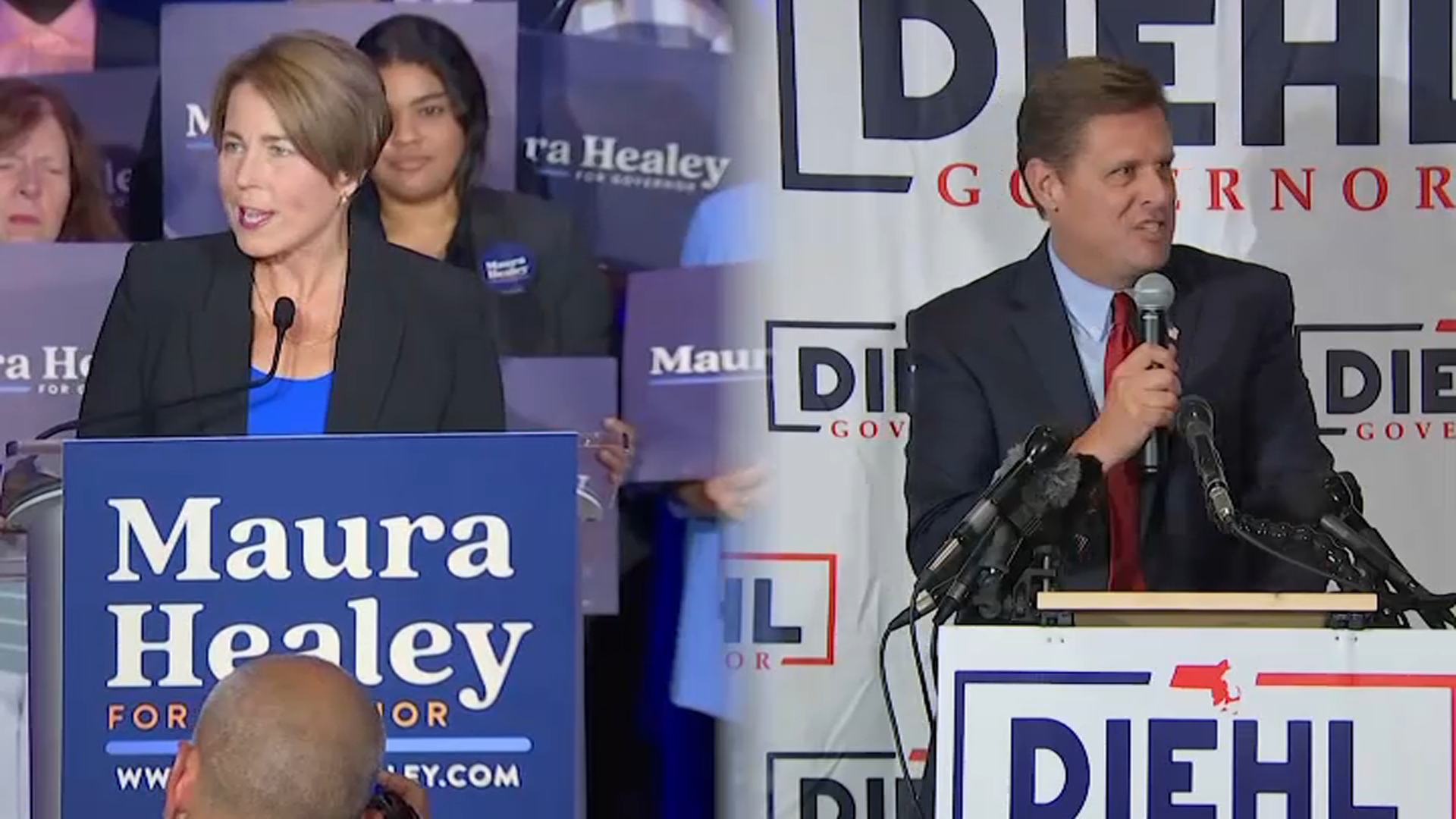More than two weeks after the Massachusetts primary, the candidates for governor have kept a low profile — with the latest Suffolk/NBC Boston poll showing Democratic Attorney General Maura Healey more than 20 points ahead of her Republican opponent, former state Rep. Geoff Diehl.
Both candidates have different ideas about how, as governor, they would handle a key issue facing state residents: the whopping spike in energy costs.
"This is devastating, devastating for residents," Healey said about the 64% price increase National Grid customers in Massachusetts are expected to see on their electric bill this winter. "It's an issue we also know has been coming."
Healey says just Wednesday, her office brought together the utility companies, state administrators and regulators to talk about solutions. She says she is looking at possibly changing how the state purchases energy.
Get Boston local news, weather forecasts, lifestyle and entertainment stories to your inbox. Sign up for NBC Boston’s newsletters.
"That would help smooth out some of the volatility and the sticker shock that we're seeing," she said.
Diehl takes a different approach.
"What we are seeing now is rate payers are being hit with a lot of the R&D costs to develop that renewable energy, whether it's wind and solar," he argued.
Diehl says renewable energy is a great goal, but will never be a replacement for all the energy that's been taken away, including coal, nuclear and liquefied natural gas.
"Maura Healey, my opponent in this race, was proud about talking how she stopped two L&G pipelines coming into Massachusetts. That feeds manufacturing, and that feeds home heating as far as energy," Diehl said.
"He's absolutely wrong," Healey said of Diehl. "What this does point to is the fact that we've got a situation worldwide where we have things evolving in Ukraine that have changed markets."
Healey believes the rising prices show that Massachusetts has been on the right track — becoming less dependent on fossil fuels.
"That is absolutely essential, so that we have access to solar, wind, storage, hydro and other energy sources," she said.
"When you keep closing all these sources," Diehl said, "and they you say you're going to be fossil fuel-free by 2030, you're creating an energy crisis and a cost crisis for consumers."
The candidates' different approaches to rising energy costs are sure to be a pivotal issue for voters come November.


